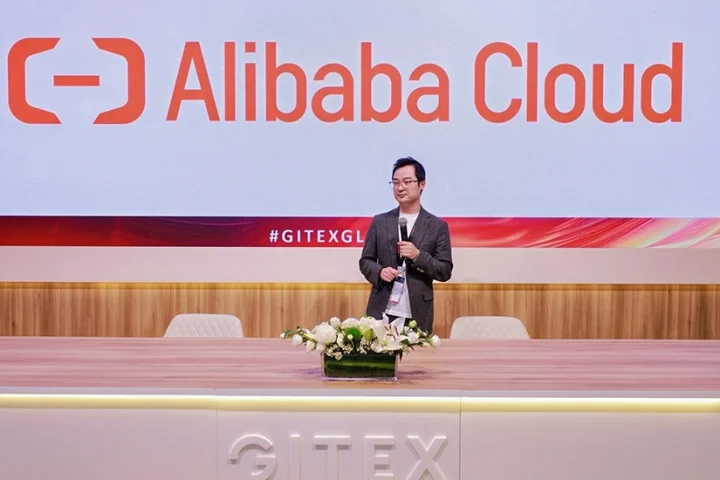For many bricks-and-mortar retail brands, the global pandemic was the catalyst that accelerated their plans to establish an online presence. In order to survive during – and after – the pandemic, many brands have realised that they need to swiftly adapt their business strategy in a significant way, while revamping their entire IT infrastructure. Such measures are necessary if they want to respond effectively to the changes in consumer behaviour, and to seize retail opportunities as they evolve in the post-pandemic digital economy.
It is my belief that the retail sector will be receptive to new digitalised businesses models, and willing to explore emerging technologies as well as cloud-based solutions. From an operational perspective, there are many benefits for them to enjoy; cloud-based solutions reduce retailers’ overheads with respect to managing a complicated IT infrastructure. They also provide useful resources to stimulate innovation, which is just what is needed as today’s consumers are eager to explore unique and ultimate shopping experience.
Therefore, to remain competitive, it is essential that bricks-and-mortar retailers look to adopt cloud-based intelligent solutions to underpin their digital transformation process. Retailers can leverage intelligent solutions to build a cloud-first and secure infrastructure, to expand their omni-channel operational footprint, enhance the customer engagement experience and utilise smart supply chains to optimise brands’ digital business models. In short, all of the measures needed to streamline their business while presenting retailers with innovative offering for their customers.
Cloud-first Infrastructure and omni-channel Sales
During the pandemic, many retailers discovered to their advantage how analytics-driven, cloud-based technologies, were able to support the huge increase in the number of online shoppers. Underpinning their ability to deliver their online offering reliably and consistently during that time of crisis, was cloud-first and secure infrastructure. This enabled retailers to adopt cloud-native technologies that can easily scale up or down the infrastructure based on their real-time business needs. Features likea globally accelerated network, cloud-native container management, and unified backup and recovery services, gave retailers peace of mind that their platform is robust, irrespective of the extreme demand it was subject to.
Adding further reassurance, are the host of essential security solutions that the cloud offers which provides comprehensive compliance and protection against a range of ever-present and increasingly sophisticated security threats. For example, retailers can build anti-fraud risk engines based on Apache Flink – an open-source stream processing framework – to defend against the ever-evolving tactics of fraudsters.
In a bricks-and-mortar business model, there are other operational essentials a retailer has to deal with daily. These range from processing orders, to dealing with payments, product assortments, inventory information, supply chain processes and so on. All of those can be digitalised and reviewed visually to help management make informed business decisions. Perhaps most importantly, when they are optimised, it is easier for digital channels to reach end customers directly while facilitating a seamless online and offline shopping experience for shoppers.
The cloud route to an optimised customer experience
Innovative technology plays a key role in recreating a fabulous in-store experience when consumers order online. Livestreaming is one useful tool for further enhancing the customer engagement experience to help drive sales. For example, ApsaraVideo Live, Alibaba Cloud’s end-to-end livestreaming solution, supports retailers’ engagement with shoppers. It does this via a live shopping platform that reaches across social media, apps and websites with high definition and low latency livestreaming capabilities, as well as personalised services such as real-time audio and subtitle translation, human interaction, and in-picture product promotion.
Using cloud computing, AI and AR/VR technologies for creating 3D virtual spaces and digital ambassadors, retail brands can attract consumers and create a shopping ‘buzz’. In particular, using cloud-based XR solutions to build a “metaverse” presence, is considered essential for retailers looking to engage with Gen-Z customers. They have different expectations when it comes to the online experience, so gearing up to successfully meet their needs can only be accomplished by adopting the latest in retail technology.
A search that goes beyond words
Meanwhile, ‘back at the store’, some products – like Image Search and Chatbots – have added a new dimension to how customers interact with sites and how they search for products. The technologies provide the necessary insights and real-time information to optimise the shopping experience for the customer, encouraging them to return time after time.
For example, image search utilises machine learning to analyse images. It enables shoppers to upload a photo or a screenshot of the product they’re interested in, rather than trying to locate it by typing in a vague keyword into the search box. Retailers can implement image search as added functionality to improve the effectiveness of the search, yielding better results for the customer and increasing customer satisfaction.
Retailers can also tap into services like Alibaba Cloud’s OpenSearch, a one-stop platform for developing intelligent search services. It was built on the large-scale distributed search engine developed by Alibaba, with the aim of helping retailers to develop high quality, maintenance-free, and high-performance intelligent search services with high search efficiency and accuracy.
Another innovative tool is the chatbot. Leveraging cloud-based, AI-powered chatbots, retailers can deliver engaging and memorable services when answering customer questions relating to product information, delivery status, shipment schedules and product recommendations. An added benefit for retailers is that the technology can help retailers save on customer service-related expenses and gain a more detailed understanding of customers’ overall inquiry trends.
Keeping stock of it all, all year around and beyond
In scenarios where stocks of essential supplies are low, technology can be used to steer customers to retailers that do have the essential supplies they need. This is made possible by retailers developing smart supply chain and inventory management solutions for asset and inventory tracking, which gives them visibility into the supply chain. From a retailer’s perspective, such solutions can also save them from the time spent cataloguing items and conducting stock-taking activities. With automation, retailers can also match inventory and order status in real time, and – at the end of the customer journey – offer suitable delivery options to customers. Furthermore, retailers can forecast sales demand so they can better plan the product assortment and optimise the management of inventory.
While the pandemic has given every single sector a considerable jolt, it has also been an opportune time for retailers to use cloud-based intelligent technology to finesse their online and offline offerings to meet the expectations of the post-pandemic consumers, as well as develop innovative models to capture new business growth in the digital economy era.
Attributed to Daniel Jiang, General Manager for Middle East and Africa at Alibaba Cloud Intelligence.

























